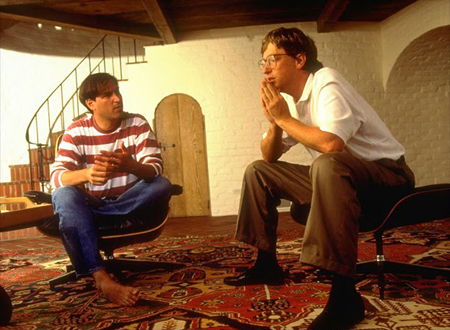Lori Emerson: An Interface Perspective
Wednesday, July 30th, 2014In an interesting interview with Furtherfield, Lori Emerson summarises her new book to explain how she is using the metaphor of the ‘interface’ to critique technological consumerism. Most interestingly, Emerson uses her Mcluhan-esque approach to technological mediation to discuss how we are increasingly ‘locked into’ using dominant social media brands.
“corporations are making it as difficult as possible to perceive these interfaces and to see how they’re mediating and even determining our experience.”
It seems to me that these corporations have established dominance not necessarily through their technological superiority but through the aggressive acquisition of successful social media start-ups and by then imposing restrictions on how they are connected. As Emerson indicates, these increasingly narrow options are then fed back to us through a culture of branding, in which “words like “seamless” and “natural” are code for “closed.””
Early notions of Personal Learning Environments (PLEs) challenged existing monolithic platforms and institution-centric models of content delivery, yet subsequent forms of PLE reification coincided with the emergence of largely commercial and increasingly monopolised social media.
Perhaps some of the original notions of PLE live on in the guise of the technologically facilitated ‘life-hacks’ and ‘tool-kits’ that are routinely shared on the blogosphere, typically oriented towards increased personal productivity and workflow efficiency. Yet whilst some offer the potential for work-arounds, which may traverse the ‘locked in’ operability between multiple platforms described above, it seems many are often almost exclusively limited to Apple and Google products.
Perhaps a shift in thinking from a ‘personal’ paradigm to that of the ‘community’ is required here, but whilst Emerson acknowledges the alternatives offered by the rise of maker and hacker communities, she suggests these are also becoming increasingly corporatised.
Emerson advocates a shift away from an obsession with efficiency and productivity, towards more creative and ‘poetic’ adaptations of technology. However, it seems to me that such pursuits often remain limited to an elite; to the technology enthusiast or professional, with any attempt at scalability for the rest of us inexorably negated by the political and economic constraints of the organisations and systems in which they operate.



